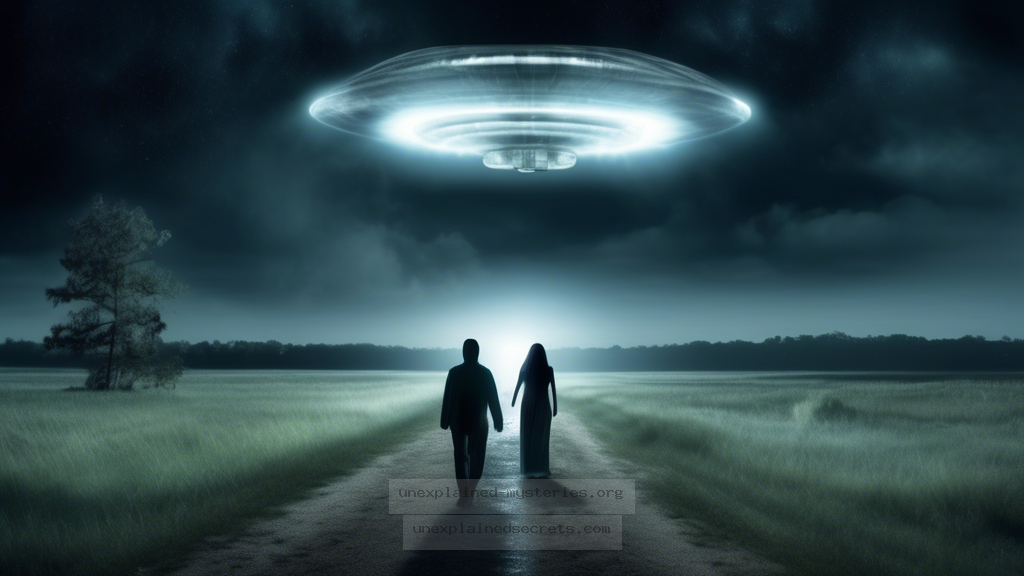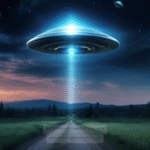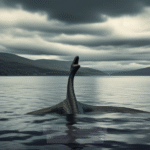What Can the 1973 Pascagoula Abduction Incident Teach Us About Ghost Sightings?
What Can the 1973 Pascagoula Abduction Incident Teach Us About Ghost Sightings?
The mysteries surrounding ghost sightings and UFO encounters often intersect, leading to a fascinating exploration of human experience, belief, and the unknown. The 1973 Pascagoula abduction incident, involving Charles Hickson and Calvin Parker, is one such case that has intrigued both UFO enthusiasts and paranormal researchers alike. Understanding this incident not only sheds light on the perceptions of alien encounters but also offers insights into how such phenomena are often interpreted as ghostly experiences. This article delves into the Pascagoula incident, examining its implications for ghost sightings, drawing parallels, and exploring how our understanding of the paranormal is shaped by our interpretation of the unknown.
Historical Context: The Pascagoula Incident
The Pascagoula incident occurred on the night of October 11, 1973, when two shipyard workers, Charles Hickson and Calvin Parker, reported being abducted by extraterrestrial beings while fishing along the Pascagoula River in Mississippi. According to their account, they were approached by a strange craft emitting a bluish light, and three robotic-looking creatures emerged, taking them aboard for what Hickson described as a “medical examination.” This event was not only a pivotal moment in UFO lore but also resonated with themes that are often present in ghost sightings: fear of the unknown, encounters with otherworldly beings, and the psychological aftermath of such experiences.
Core Concepts: The Intersection of UFOs and Ghost Sightings
Both UFO encounters and ghost sightings share common threads in terms of psychological and cultural interpretation. They often evoke strong emotional responses and challenge our understanding of reality. Here are some core concepts that link these phenomena:
- Fear and Awe: Both UFO and ghost experiences can invoke feelings of fear and awe, leading witnesses to question their perceptions of reality.
- Witness Reactions: The psychological impact on witnesses can lead to lasting effects, including trauma, skepticism, or a deepened belief in the supernatural.
- Social and Cultural Context: Cultural beliefs and societal narratives often shape how individuals interpret encounters with the unknown.
Practical Implications: Evidence and Documentation
In analyzing the Pascagoula incident, it’s essential to consider the physical and anecdotal evidence presented. Hickson and Parker both underwent polygraph tests, which they reportedly passed, lending some credibility to their claims. Additionally, the witness accounts were consistent in their descriptions of the beings and the craft, reinforcing the idea that something unusual occurred. However, the lack of physical evidence, such as a craft or biological samples, has led skeptics to question the validity of their claims.
This notion of evidence is crucial in ghost sightings as well. Many reported ghost experiences lack tangible proof, leading to debates about their authenticity. Investigators often rely on personal accounts, photographs, and recordings, yet these can be easily manipulated or misinterpreted. Thus, the Pascagoula case serves as a reminder that evidence in both UFO and ghost phenomena can be subjective and open to interpretation.
Alternative Perspectives: Skepticism and Belief
While many enthusiasts view the Pascagoula incident as a genuine encounter with extraterrestrial beings, skeptics offer alternative explanations, such as sleep paralysis, hallucinations, or even a hoax. These perspectives highlight the duality of belief systems surrounding both UFOs and ghosts. In ghost sightings, many skeptics argue that experiences can often be attributed to environmental factors, psychological states, or cultural influences.
In both cases, the line between belief and skepticism can be thin. The Pascagoula incident has sparked ongoing debates about the nature of reality and our understanding of the universe, similar to the discussions around ghost sightings. These contrasting viewpoints underscore the complexity of human belief and the challenges of discerning fact from fiction.
Common Misconceptions and Clarifications
There are several misconceptions surrounding ghost sightings and UFO encounters that can muddle public understanding. For instance, many people conflate all paranormal experiences as being related to one another. However, the nature of the experiences, their cultural contexts, and the types of evidence presented can vary significantly.
Another misconception is that all ghost sightings are negative or malevolent. Just as the Pascagoula incident is often viewed through a lens of fear, many ghostly encounters can be benign or even comforting. Similarly, not all UFO sightings indicate hostile extraterrestrial intentions; many witnesses report feelings of peace or awe during their encounters.
Best Practices for Investigation and Study
For those interested in exploring the realms of ghost sightings and UFO encounters, adopting a structured approach is crucial. Here are some best practices:
- Document Everything: Keep detailed records of sightings, including time, location, and emotional responses.
- Use Technology Wisely: Invest in quality recording devices and understand how to analyze data effectively.
- Engage with Experts: Collaborate with experienced investigators and researchers to gain insights and guidance.
- Maintain Objectivity: Approach each case with an open mind but remain critical of the evidence.
Future Developments: Ongoing Research and Exploration
The Pascagoula incident continues to inspire research and exploration into both UFO phenomena and ghost sightings. Scholars and enthusiasts are increasingly examining the psychological, sociocultural, and historical contexts of these experiences. Ongoing advancements in technology, such as enhanced imaging techniques and data analysis software, are providing new avenues for investigation.
Furthermore, public interest in UFOs has surged in recent years, prompting government disclosures and renewed scrutiny of unexplained aerial phenomena (UAP). This evolving landscape offers a unique opportunity for researchers to study the connections between UFO sightings and ghostly experiences in a more systemic way.
Conclusion: Bridging the Gap Between UFOs and Ghost Sightings
The 1973 Pascagoula abduction incident remains a compelling case that illustrates the intricate relationship between UFO encounters and ghost sightings. By examining the historical context, core concepts, and practical implications of such phenomena, we gain valuable insights into human perception of the unknown. As research continues and public interest grows, the mysteries of both UFOs and ghost sightings will undoubtedly evolve, challenging our understanding and inviting us to explore the limits of reality.
In essence, whether we are confronted with a ghostly apparition or an unidentified flying object, our experiences reveal not only our fears and hopes but also our insatiable curiosity about the universe and our place within it.
Other Articles
Recent Posts
- What Happened to Flight MH370? The Conspiracy Theories That Still Haunt Us
- What Secrets Lurk Within the Walls of the Infamous Trans-Allegheny Lunatic Asylum?
- What Evidence Supports the Existence of Bigfoot in the Pacific Northwest?
- What Happened to the Indus Valley Civilization? Unraveling the Mysteries of Ancient Urban Life
- Can Telepathy Be Scientifically Proven Through Laboratory Evidence?







